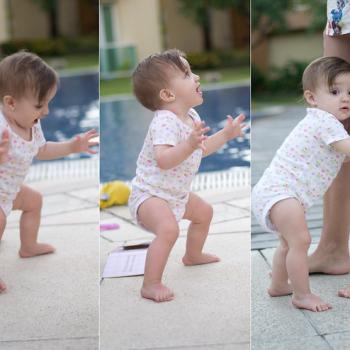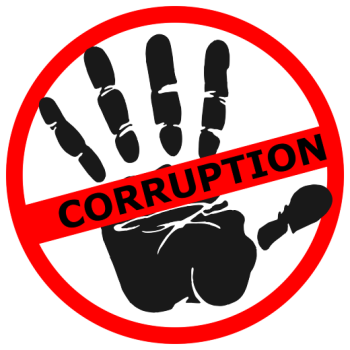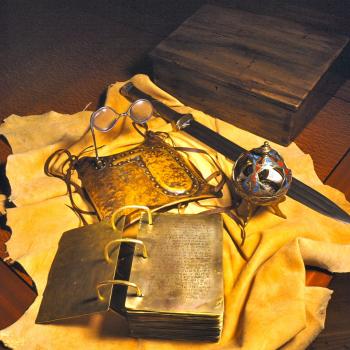"I don't label people, I refuse to label people," Tammy Faye told an interviewer during the making of a 1999 documentary, The Eyes of Tammy Faye. Until her death from cancer in 2007, she attracted a passionate following in the gay community and even became something of a minor celebrity at gay pride rallies around the country. "We're all just people, made out of the same old dirt; and God didn't make any junk."
It shouldn't therefore be surprising that, according to its website, her son's church is meant "for those who feel rejected by traditional approaches to Christianity . . . to show all people the unconditional love and grace of Jesus without any reservations due to their lifestyles or background, past or future." Tammy Faye Bakker may have been famous for her outrageous eyelashes and immaculate coiffure, and her son may have no shortage of tattoos, but beyond the artifice there is continuity here, in values and in teachings.
Jay recognizes this continuity. "My mom's tears are real. She had a sensitive heart," he tells me. "For better or worse I have the same heart."
While a broadcast empire that reached millions seems very different from a Sunday bar ministry, Revolution's sermons receive eight to ten thousand downloads a week, according to the church's webmaster, Paolo Mello. In a neighborhood marked by an overabundance of bars, and amongst a demographic not much known for its intense piety, Bakker offers a church that young New Yorkers with a spiritual yearning and a liberal bent approach on their own terms.
Weekly sermons given by Bakker and his assistant, Reverend Vince Anderson, are explorations of scripture that often leave more congregants with more questions than answers. One Sunday, Vince launched a sermon with a quote from the poet Rumi: "Today, like every day, we wake up empty. There are a hundred ways to kneel and kiss the ground."
Not everyone embraces this approach. I was at the church after a recent sermon when one of Vince's provocations so riled up a first-time attendee that he accosted Jay afterward and asked, "What the hell do you stand for then?"
Afterward, Jay said with a bemused look on his face, "It was an interesting moment, trying to tell him what Revolution stands for, because I didn't really know what to tell the guy -- and I've been the pastor for fourteen years." Next to him was a collection hat with a few bills in it and a pile of Would Jesus Discriminate? bumper stickers. "I told him that I think what Vince meant in his sermon is that we shouldn't act like we own the truth."
Pastoring wasn't an obvious career choice for Jay -- having lived through the very public excommunication of his family from their church, institutional religion was something he couldn't flee fast enough. Only 13 years old when scandal ripped through his family, Bakker spent much of his adolescence abusing drugs and alcohol, dropped out of high school, and moved in counterculture and punk rock circles that don't typically spend much time discussing the Bible. He has dyslexia, which went undiagnosed until he was 18, the same year that he got sober and rediscovered an "understanding God offering his gift of love and grace with no strings attached." A year later, in 1994, Jay and two friends planted the seeds for Revolution in Phoenix, Arizona.
The newly-founded church sought to reach a subculture of people often ignored or dismissed by mainstream churches: skateboarders and punk rockers, bohemians and dreamers, kids with spiky hair and less-than-stellar academic records. Art exhibitions, DJ sets, and touring bands became regular features of Revolution's services, and the church expanded quickly. Jay moved to Los Angeles in 1997 and then to Atlanta in 1998. There, the church enjoyed a large following until 2006, when Jay decamped for New York.
In One Punk Under God, a 2006 Sundance Channel documentary series following the ups and downs of Revolution Church in Atlanta, there's a poignant scene in which Jay walks through the ruins of Heritage USA, the largest Christian theme park in the country. The jewel in the crown of the PTL Club, Heritage was behind only Disneyland and Disney World in number of visitors during its 1980s heyday. The park is now abandoned: empty swimming pools, buildings falling down, rows of shops overgrown with weeds. Heritage USA was also at the nexus of the embezzlement controversy, a scheme in which hundreds of investors paid for shares that didn't exist.
"My parents went from being the biggest preachers in the country to, twenty-four hours later, being outcasts and abandoned by most of their friends," Jay told me on a fall evening at a coffee shop a few blocks from his apartment in Brooklyn. His parents' experience, he says, helped him develop an acute sensitivity for those who have been abandoned by the church. People who grew up in Christian churches but have lapsed in attendance often respond well to the younger Bakker.




